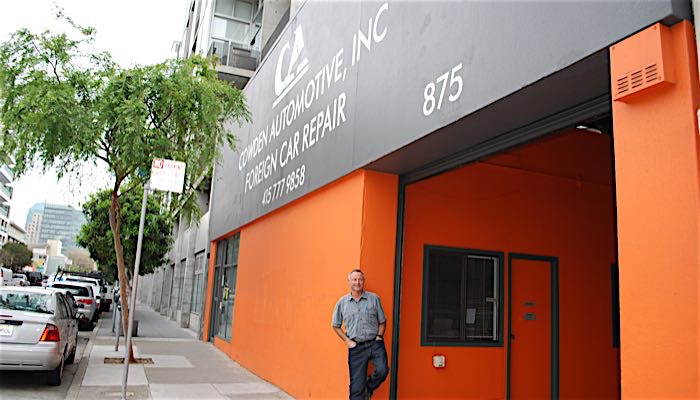Pennsylvania Rep. Matthew Bradford, D-District 70, has introduced a bill to penalize fraudulent practices regarding airbag installation and reinstallation. The legislation includes penalties for those who:
(1) install or reinstall, as part of a motor vehicle inflatable occupant restraint system, an object in lieu of an airbag, including a light manipulating system;
(2) sell or offer for sale any device with the intent that the device will replace an airbag in any motor vehicle if the person knows or reasonably should know that the device does not meet federal safety requirements;
(3) sell or offer for sale any device that, when installed in a motor vehicle, gives the impression that an operable airbag is installed in that motor vehicle, including any light manipulating system; or
(4) intentionally misrepresent the presence of an airbag when one does not exist.
The Motor Vehicle Airbag Fraud Prevention Act also outlines restrictions for purchasing, selling or installing new or salvaged airbags. This includes:
(1) A person engaged in the business of purchasing, selling or installing salvaged airbags shall maintain a manual or electronic record of the purchase, sale or installation, which must include the identification number of the airbag; the VIN of the vehicle from which the salvaged airbag was removed; the name, address and driver’s license number or other means of identification of the person from whom the salvaged airbag was purchased; and in the event that the salvaged airbag is installed, the VIN of the motor vehicle into which the airbag is installed. No new or salvaged airbag shall be sold or installed that is or has been subject to a specific manufacturer’s or appropriate authority’s notice of recall.
(2) (i) A person engaged in the business of installing a new replacement airbag shall maintain the name and tax identification number of the supplier of the airbag and record the VIN of the motor vehicle into which the airbag is installed, as well as the identification number of the airbag being installed. The identification number of the previously deployed airbag being replaced shall be recorded.
(ii) Upon request of any law enforcement officer of the Commonwealth or other authorized representative of the agency charged with administration of this section, the installer shall produce such records and permit said agent or police officer to examine them.
(3) A person who installs a salvaged airbag in a motor vehicle shall apply a permanent, durable label that clearly states that the motor vehicle contains a salvaged airbag. The label shall be permanently installed on the dashboard of the motor vehicle.
(4) A person who sells a salvaged airbag or who installs a salvaged airbag shall disclose to the purchaser and motor vehicle owner that the airbag is salvaged.
(5) A person who installs a new or salvaged airbag shall submit an affidavit to the motor vehicle owner or the owner’s representative stating the replacement airbag has been properly installed.
(6) All records shall be maintained for not less than five years following the transaction and may be inspected during normal business hours by any law enforcement officer of the Commonwealth or other authorized representative of the department.
(7) Upon request, information within a portion of a record pertaining to a specific transaction shall be provided to the insurer and the motor vehicle owner.
(8) A person engaged in the business of selling salvaged airbags shall comply with regulations developed by the department. The regulations shall include, but not be limited to, the following standards:
(i) Identification of the supplier of the unit.
(ii) Identification of the recipient motor vehicle, including VIN, year, make and model.
(iii) Identification of the airbag module cover color and color code, if available.
(iv) Identification of the donor motor vehicle, including VIN, year, make and model.
(v) Supplier’s internal stock number or locator number.
(vi) Indication of source of interchange information (i.e., interchange manual/part number, OEM information, etc.).
(vii) A supplier certificate indicating that all the requirements of the inspection protocol have been successfully achieved and identifying the person who completed the inspection.
(viii) A document containing the motor vehicle description including the year, make and model for which the airbag system component is required when being sold to the end user.
(9) Salvage airbags conforming to the regulations promulgated in accordance with paragraph (8) shall be accompanied by a certificate of conformance, which shall be retained by the installer.
(b) Prohibition. – It is unlawful for any person to knowingly possess, sell or install:
(i) a stolen airbag;
(ii) an airbag from which the manufacturer’s part number labeling or VIN has been removed, altered or defaced; or
(iii) an airbag taken from a stolen motor vehicle.
In addition, the Motor Vehicle Fraud Prevention Act states that anyone aware of the fact that they are selling or trading an inoperable airbag must notify the person they are selling or trading to by written confirmation. The act concludes by outlining the consequences of violating the Motor Vehicle Fraud Prevention Act, which include:
(1) Any person who violates section 3, 4(a)(3) or (b) or 6 is guilty of a felony and, upon conviction thereof, shall be punished by a fine of not less than $1,000 and not more than $2,000 per violation, or imprisonment for up to two years, or both.
(2) A person whose violation of section 3, 4(a)(3) or (b) or 6 results in a serious bodily injury or death shall be imprisoned for not more than 10 years or fined not more than $100,000, or both.
(3) Any person who fails to maintain complete and accurate records, to prepare complete and accurate documents, to provide information from such records upon request or to properly disclose that an airbag is salvaged, as required by this act, commits a misdemeanor of the third degree.

